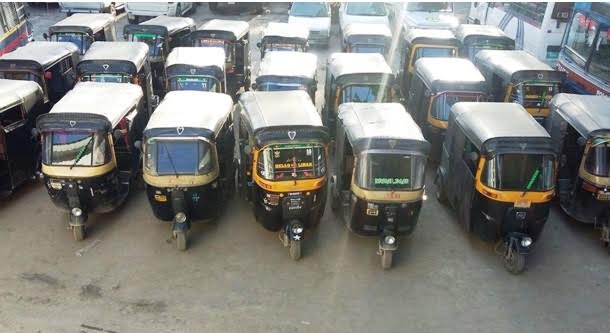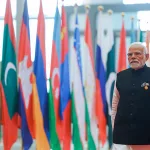M Haziq Pandit
Srinagar, Sep 1: Auto-rickshaw drivers in Srinagar continue to flout fare meter regulations, despite repeated directives and stern warnings from authorities. This long-standing issue has left commuters frustrated, with many forced to pay arbitrary and often inflated fares for even short distances.
Residents say the practice has become widespread, leaving passengers with little choice but to negotiate fares or pay what drivers demand. Mujtaba Lone, a commuter from Baghat, said, “I was charged Rs 250 for a 3-kilometre ride. When I questioned it, the driver claimed it was the standard fare. There’s no consistency in the charges.”
Taufiq Zargar, another commuter, said: “Every day is a struggle. I often argue with drivers about fares, but there’s no way to verify if the price is fair. Sometimes, we have no option but to pay whatever they demand.” For elderly commuters and women, the situation is even more challenging, with many saying they feel powerless to argue with drivers over fare discrepancies. Hameeda Jan, an elderly resident from Bemina, said: “At my age, I can’t argue with drivers. Most of the time I just pay what they ask because I don’t have the strength to haggle. The fares are unfair, but what option do we have?” Shabnam Khan, another resident, added: “If we question the fare, drivers threaten to refuse the ride. Out of necessity, we end up paying. Authorities must step in, otherwise this harassment will never end.”
Interestingly, authorities have issued multiple directives over the years to ensure that auto-rickshaw drivers adhere to meter-based fares. In January, Transport Commissioner Vishesh Paul Mahajan reiterated that all auto-rickshaws must be equipped with functional meters and valid permits, warning that strict action would be taken against violators. Despite these measures, effective enforcement remains a challenge. Asim Yatoo, a commuter, said, “Authorities keep issuing orders, but nothing changes on the ground. Commuters are left at the mercy of drivers, and this problem has become part of daily life. Strict monitoring is needed.”
Auto-rickshaw drivers, however, defend their practices, citing rising costs and outdated fare structures. Tufail Wani, an auto driver, said, “If we follow the meters, we’ll barely earn anything. Inflation is high, and rates haven’t been revised in a long time.” Fayaz Ahmad, President of the All Kashmir Auto Rickshaw Association, said, “The last revision of auto-rickshaw fares took place in 2021. Since then, no update has been made to reflect rising costs of fuel, maintenance, and daily expenses. We have repeatedly approached authorities to revise the rates, but nothing has been done. Drivers are penalized for violations despite having limited options. We are simply trying to earn a living, and fair fare adjustments would benefit both commuters and drivers.”
It is pertinent to mention that the Regional Transport Office (RTO) Kashmir has the authority to revise auto-rickshaw fares, while enforcement falls under Srinagar Traffic Police. Rising Kashmir reached out to both authorities for comments on the issue. A senior official from Srinagar Traffic Police, requesting anonymity, acknowledged the difficulties in enforcement, stating, “We are actively working to implement the rules. However, drivers often raise concerns about unfair rates, which complicates enforcement. We have engaged with RTO Kashmir on this matter, but addressing these concerns remains challenging.” An official from RTO Kashmir, also requesting anonymity, said steps are being taken to resolve the issue. “A committee has been set up to examine the matter in detail. Once its recommendations are finalised, the necessary measures will be implemented,” the official added.
IUST to host inaugural edition of annual architecture festival ‘Nairang-e-Tameer’ (ENSURE
RK News Service
Awantipora, Sep 1: The Department of Architecture, Islamic University of Science and Technology (IUST), is proud to host the inaugural edition of its annual architecture festival, Nairang-e-Tameer, from September 2 to 4.
As per a statement issued here, this year’s theme, “Rooted Futures: Design for All,” emphasizes inclusive and sustainable approaches to design while celebrating cultural and architectural richness.
The three-day festival will begin with an Architecture Conclave, where distinguished experts from across India will share insights through lectures and discussions. Day two will open with an Entrepreneurial Forum featuring a panel discussion on architectural practice, followed by an exhibition of works by local architects, invited professionals, and students from IUST and other participating schools of architecture and design. The day will close with a networking event designed to connect students, educators, and practitioners. The final day will focus on student workshops and competitions, offering hands-on learning opportunities, and will conclude with a vibrant cultural program and closing ceremony, marking the culmination of this landmark initiative. With “Rooted Futures: Design for All,” Nairang-e-Tameer aspires to spark meaningful dialogue, showcase creative talent, and build bridges between academia, practice and community





